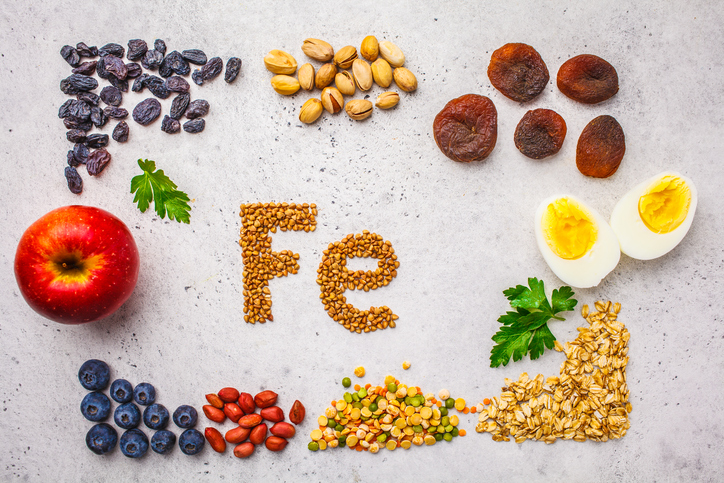When you hear “good source of protein,” what foods come to mind? Boneless, skinless chicken breast? A medium rare rib? A cup of Greek yogurt sprinkled with slivered almonds? What about yellow peas?
It might not be your first thought, but pea protein is a great option for anyone who wants the benefits of protein supplementation but prefers plant-based products. Learn why we use pea protein in our protein supplements—and how choosing a plant-based protein won’t short-change your benefits and goals.
5 Nutritional Benefits of Pea Protein
The humble pea is actually a powerhouse of protein, and that’s just part of its appeal. Here are some of the nutritional benefits of pea protein.
1. Helps muscle repair and growth
You probably know the basics of how muscles are built: Exercise (especially strength training) causes damage to muscle tissue. In the process of repairing them, the muscles grow stronger and larger in size. In short, exercise is the stimulus, and adequate nutrition—specifically, protein—is the key to adaptation.
“Pea protein helps build muscle as it provides the building blocks (amino acids) your muscles need to repair and rebuild after exercise,” says Paul Falcone, chief scientist at BODi. Drinking a pea protein shake or smoothie after exercise or between meals can help you meet your daily protein needs.*
The plant-based formulation of Beachbody Performance Recover uses pea protein as the primary protein source, providing 20 grams of protein per serving. It also contains essential amino acids, so called because they are not produced by the body and must be obtained from food. These essential amino acids also include branched-chain amino acids (BCAAs).
2. Helps improve performance
Falcone notes that the benefits of consuming pea protein can be cumulative. With consistent fueling as well as training and recovery, you’re likely to notice a significant difference in your workouts.
“Pea protein post-workout also helps support performance because you can get stronger over time if you’re giving your body what it needs to recover properly,” says Falcone.*
3. Vegan-friendly and dairy-free
As mentioned above, including a protein shake or smoothie in your routine can aid in muscle recovery. But for people following a vegan or dairy-free diet, protein supplements containing whey and casein (most powders and ready-made drinks available) are not an option.
Because pea protein is completely plant-based, it’s a comparable, dairy-free alternative to animal-based protein powders that’s also vegan-friendly.
4. Excellent source of iron

Iron is essential for maintaining healthy blood. However, it can be difficult to meet your daily intake requirements, especially if you follow a vegan or vegetarian diet. They exclude the more readily available sources of heme iron found in animal-based foods such as meat, poultry and seafood.
Peas and other legumes are good natural sources of iron, which makes pea protein a worthy option for anyone looking to increase their iron intake. One serving of Beachbody Performance Plant-Based Recover contains 5 mg of iron, which is more than half the recommended daily value for men and about 25 percent for women.
5. It can help you be content
Looking to maintain or lose weight? The key is to find the right balance between feeling full and not exceeding your daily calorie needs. Research shows that consuming protein can help keep you full longer, making snacking less appealing between meals, and compared to other sources of protein, studies have found that pea protein can be just as effective at eliminating of hunger.*
Why do we use pea protein?
According to Falcone, BODi’s choice to use pea protein for our vegan protein supplements is based on the unique chemical composition of pea protein.
“We chose pea protein because it provides leucine (a BCAA) and a wide range of other essential amino acids in amounts that can aid post-exercise recovery,” he says. “Research shows that leucine and essential amino acid content are extremely important when choosing protein sources for muscle building and exercise performance.”*
Does pea protein work for muscle growth?

When paired with a consistent resistance training routine, a healthy diet, and proper rest and recovery, pea protein can help you gain muscle mass, strength, and power.
“Pea protein provides essential amino acids, which are necessary building blocks to help rebuild and repair muscle,” says Falcone. “Leucine is a particularly important essential amino acid, as it enhances the molecular signal for muscle rebuilding, while also being a building block.”
In fact, pea protein can be just as effective in helping you gain muscle as some of the most commonly used supplements on the market. Falcone notes a study at Lipscomb University in which researchers compared pea protein to whey protein, “an animal-based protein that’s considered the gold standard for building muscle,” he says.
“The young men and women in the study underwent eight weeks of a high-intensity functional training protocol. Both pea and whey protein produced similar results in measures of strength and muscle mass, suggesting that pea may be as effective as whey in conjunction with a HIIT protocol.”*
*These statements have not been evaluated by the Food and Drug Administration. This product is not intended to diagnose, treat, cure or prevent any disease.


